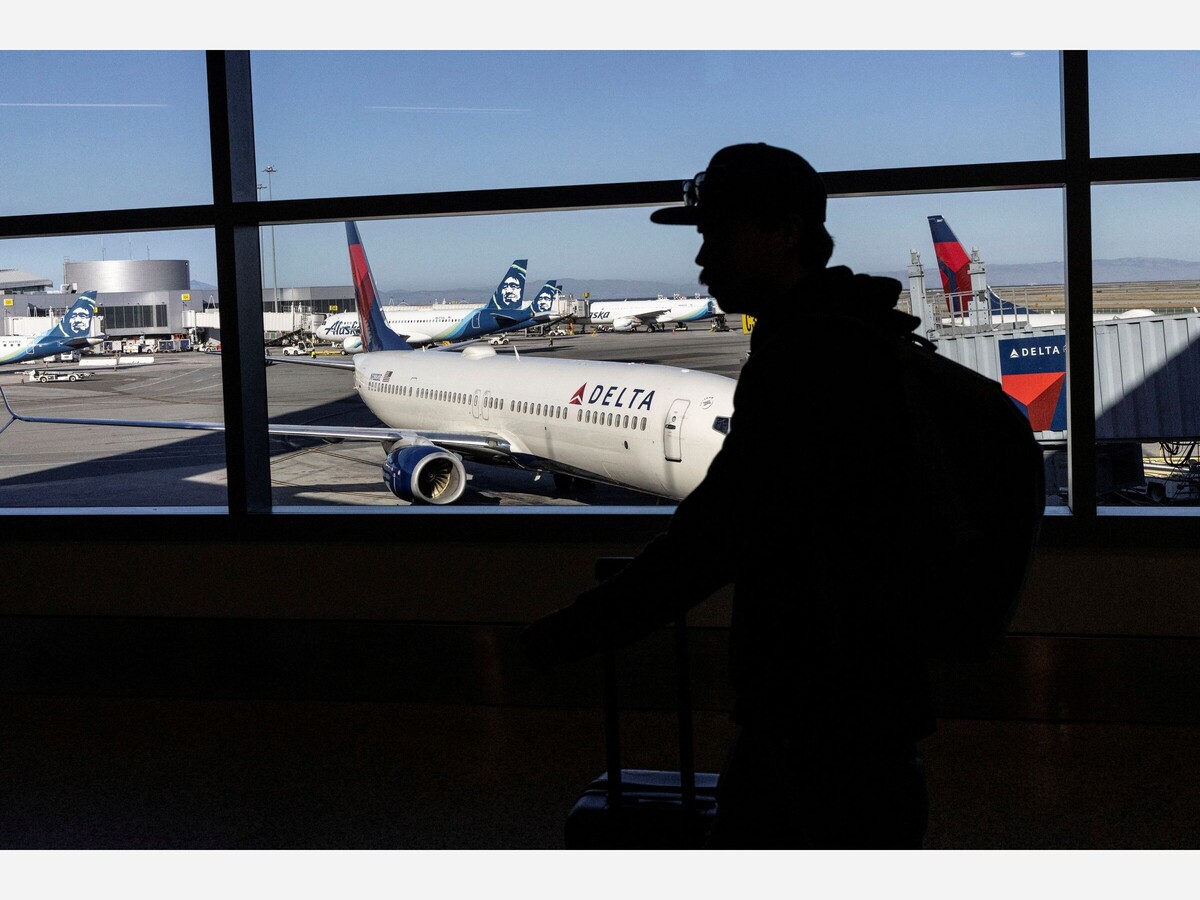Image


The headline is stark, yet tragically familiar: Thousands of passengers grounded in Seattle, Pittsburgh, Orlando, Boston, and Minneapolis. Seventy flights canceled. More than 5,000 delayed.
What should have been an ordinary travel week has instead become a national spectacle of dysfunction — a slow-motion breakdown that reveals how deeply fragile America’s air travel system has become. When major carriers like Delta, United, American, and even smaller regional players such as Cape Air and Breeze collectively buckle, the failure isn’t anecdotal. It’s systemic. It’s an indictment of how the nation moves its people — and how easily that movement can grind to a halt.
But this time, the chaos in the skies isn’t just about weather, software glitches, or overbooked crews. It’s about politics — specifically, a federal government shutdown that has left the aviation system gasping for stability. The collision of a dysfunctional Congress and a brittle airline infrastructure has created the perfect storm, and the result is a country that suddenly feels very small — and very stuck.
The numbers tell a damning story: 70 canceled flights may sound manageable, but 5,000 delays speak to a deeper rot. A network that fragile can’t absorb the smallest tremor without shattering.
Behind those numbers are stories of passengers sleeping on terminal floors, families missing weddings and funerals, elderly travelers left without help, and business meetings evaporating in real time. What the industry calls “operational challenges” are, for the public, daily emergencies — the loss of time, money, and dignity.
This collapse didn’t come out of nowhere. Airlines operate on hyper-optimized schedules, trimming every buffer for profit. When everything goes right, it’s efficient. But when the smallest storm or system glitch strikes, the whole network collapses like a house of cards. And when that happens amid a government shutdown, the damage doubles.
Thousands of essential federal workers — air traffic controllers, TSA officers, FAA safety staff — are working without pay or furloughed entirely. Inspections are delayed, training halted, and stress levels are skyrocketing. In California, an airport control tower recently went unstaffed for six hours due to shutdown-related disruptions, forcing emergency rerouting and remote management. In this fragile system, even a six-minute gap can cost lives.
The American aviation crisis boils down to three words: technology, staffing, accountability.
Technology:
Our airlines are operating twenty-first-century fleets on twentieth-century IT. Outdated systems — often patched together across vendors — make the entire network one software update away from paralysis. A single vendor outage recently triggered global ground stops for Delta, United, and American Airlines, proving that there is no true digital redundancy. The industry’s dependency on fragile software ecosystems isn’t just inefficient — it’s dangerous.
Modernization can’t be optional. The FAA and major carriers must invest in secure, independent, and redundant systems designed to withstand the next inevitable outage. “Efficiency” that depends on luck is not efficiency. It’s negligence.
Staffing:
The staffing shortage has been the open secret of the skies for years. Even before the shutdown, the FAA was short by thousands of air traffic controllers. Now, with training halted and pay frozen, fatigue and absenteeism are compounding delays. Overworked crews and understaffed towers mean the margin for error is thinner than ever. In an industry where safety depends on precision, that’s an existential threat.
Accountability:
When airlines cancel flights or cause controllable delays — mechanical failures, staffing gaps, or system glitches — passengers shouldn’t pay the price. Yet in the U.S., compensation is minimal, inconsistent, or buried in fine print. Europe enforces automatic cash payouts for delays over three hours. America, despite being home to the world’s largest aviation market, does not.
Without financial consequences, airlines have no incentive to reform. The Department of Transportation should mandate automatic compensation for preventable delays and cancellations, creating real economic pressure to fix what’s broken.
What makes this round of disruption especially infuriating is that it’s self-inflicted. The government shutdown, now in its second week, has frozen federal aviation funding and forced more than 11,000 FAA employees off the job. Controllers and inspectors — the invisible guardians of American airspace — are working without pay, if at all.
To treat the aviation system as political collateral is not governance. It’s recklessness. Every hour of shutdown magnifies systemic risk: missed inspections, training backlogs, and escalating fatigue among unpaid staff. The longer it continues, the more normalized dysfunction becomes — and the more passengers will pay, literally and figuratively.
This cannot be fixed with another CEO apology or a congressional hearing full of finger-pointing. We need a national reckoning — one that matches the scale of the crisis.
A functional air travel system is not a luxury — it’s a measure of national competence. It connects families, drives commerce, and literally keeps America moving. Every delay, every cancellation, every stranded traveler reflects a nation that has tolerated fragility for too long.
When passengers are grounded in Minneapolis or Boston tonight, it’s not just because of a thunderstorm or a tech glitch. It’s because our systems — political, technical, and moral — have failed to keep pace with our ambitions.
The sky isn’t just broken. It’s crying out for leadership.
Until we fix it, every flight you book is a gamble — not against weather, but against a system that’s lost its balance between profit, politics, and public trust.